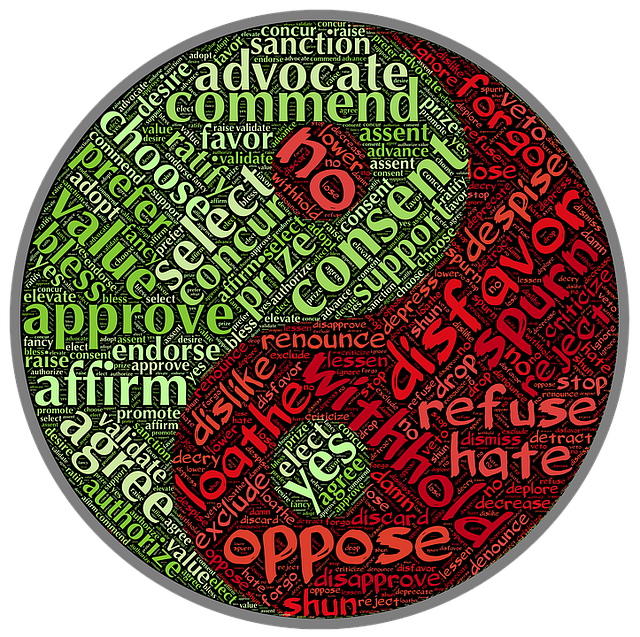In the UK, navigating multi-language consent forms requires a deep understanding of GDPR and Data Protection Act 2018 regulations. Organizations must provide clear, comprehensive consent forms in multiple languages through professional translation services to ensure compliance, protect individuals' rights, and achieve inclusivity. Engaging proficient translators ensures accurate translations that convey legal rights without ambiguity, enhancing patient safety and satisfaction while simplifying legal processes. Choosing a reputable service with native-speaking translators skilled in legal terminology and cultural nuances is crucial for effective communication and legal compliance. Regular reviews by experts optimize translations as laws evolve. Implementing multi-language consent forms involves identifying target languages, engaging specialized translation services, ensuring legal validity, developing centralized management systems, and training staff. Case studies show that providing translated consent forms improves understanding, satisfaction, and trust among diverse patient populations, making translation services vital for Informed Consent Forms UK.
In today’s globalized world, organizations in the UK often deal with clients and patients from diverse linguistic backgrounds. Handling multi-language consent forms is not just a convenience but a legal requirement. This article guides you through the intricacies of navigating these forms, covering legal obligations, benefits of multilingual consent, potential challenges, choosing the right translation service, best practices for accurate translations, and a step-by-step implementation guide. We also explore successful case studies, emphasizing the importance of translation services in informed consent processes for organizations across the UK.
- Understanding the Legal Requirements for Multi-Language Consent Forms in the UK
- The Benefits of Offering Consent Forms in Multiple Languages
- Challenges and Potential Pitfalls of Translating Consent Forms
- Choosing the Right Translation Service for Your Organization
- Best Practices for Ensuring Accurate and Culturally Sensitive Translations
- Implementing Multi-Language Consent Forms: A Step-by-Step Guide
- Case Studies: Successful Integration of Translation Services in Informed Consent Processes
Understanding the Legal Requirements for Multi-Language Consent Forms in the UK

In the UK, handling multi-language consent forms requires a thorough understanding of legal requirements to ensure compliance and protect individuals’ rights. The General Data Protection Regulation (GDPR) and the Data Protection Act 2018 underscore the importance of clear and comprehensive consent, especially when dealing with subjects who may not speak English as their first language. Providing consent forms in multiple languages is one way to meet these standards, ensuring that all individuals can fully comprehend the information presented.
Translation services for informed consent forms UK play a crucial role here. Accurate translations are essential to convey legal rights and obligations without ambiguity or misinterpretation. Organizations must engage professional translators who understand both the source and target languages and are familiar with legal terminology to guarantee the integrity of the translated documents. This process is vital to establishing a robust framework for data protection and ensuring that individuals give their consent knowingly and voluntarily.
The Benefits of Offering Consent Forms in Multiple Languages

Offering consent forms in multiple languages is a significant step towards ensuring inclusivity and accessibility in healthcare settings, especially with the diverse patient populations in today’s globalized world. In the UK, where a rich mix of languages is represented, it’s crucial to provide information in a way that every individual can understand. Translation services play a vital role here, enabling medical professionals to deliver informed consent forms tailored to each patient’s linguistic needs.
This approach has numerous advantages. Firstly, it enhances patient safety by reducing the risk of misunderstandings or misinterpretations. When patients fully comprehend their rights and responsibilities, they can make more informed decisions about their treatment. Secondly, it improves patient satisfaction and trust, as individuals feel respected and valued when provided with documentation in their native language. Moreover, this practice simplifies legal processes and reduces potential liability issues related to consent forms, ensuring compliance with regulations like the Data Protection Act (DPA) and General Data Protection Regulation (GDPR).
Challenges and Potential Pitfalls of Translating Consent Forms

Translating consent forms into multiple languages presents several challenges, especially when it comes to ensuring accurate and culturally sensitive documentation. One of the primary concerns is maintaining the integrity of the original meaning while adapting the content to different linguistic structures. Informed consent forms require precise language to convey complex medical or legal information, any misinterpretation could lead to misunderstandings or even legal complications.
Additionally, cultural nuances play a significant role in translation. Words and phrases that seem straightforward in one language might not have an exact equivalent in another, requiring translators to find alternative expressions that still carry the same weight of meaning. In the context of healthcare or research, where consent forms are crucial, relying on machine translations alone can be risky. It’s recommended to seek professional translation services for informed consent forms, ensuring accuracy and compliance with legal requirements, particularly when operating in diverse linguistic regions like the UK.
Choosing the Right Translation Service for Your Organization

When it comes to multi-language consent forms, especially in the UK, selecting a reputable and reliable translation service is paramount for ensuring accuracy and legal compliance. Informed consent is a fundamental aspect of any medical or research process, and its precise communication across different languages is non-negotiable. Look for a service that not only offers professional translation but also possesses expertise in regulatory documentation to guarantee the form adheres to local laws and guidelines.
In the UK, where a diverse range of languages is spoken, consider a translation company with native-speaking translators who are well-versed in both legal terminology and cultural nuances. This ensures that the translated consent forms maintain their integrity while effectively communicating complex information to a non-English speaking population. Additionally, opt for services that provide quality assurance checks, such as proofreading and editing, to minimize errors and guarantee the highest level of precision.
Best Practices for Ensuring Accurate and Culturally Sensitive Translations

When dealing with multi-language consent forms, especially in the context of healthcare or research in the UK, ensuring accurate and culturally sensitive translations is paramount. It’s not just about converting words from one language to another; it involves a deep understanding of cultural nuances and legal requirements unique to each region. Best practices for achieving this include engaging professional translation services specifically tailored for informed consent forms. These services should employ translators who are not only fluent in both languages but also have expertise in the specific subject matter.
Additionally, using standardized terminology and ensuring consistency across all language versions is crucial. This involves consulting with experts from each target culture to validate that translations accurately convey the intended meaning without losing or adding context. Regular reviews and updates by legal or ethical review boards can also help maintain the integrity of translations, especially as laws and cultural perspectives evolve over time.
Implementing Multi-Language Consent Forms: A Step-by-Step Guide

Implementing Multi-Language Consent Forms: A Step-by-Step Guide
1. Identify Target Languages: Start by determining the languages required based on your audience demographics and legal obligations. In the UK, for instance, offering consent forms in common languages like English, French, German, or Spanish might be crucial.
2. Secure Professional Translation Services: Engaging reputable translation services ensures accurate and culturally sensitive translations. Look for providers specializing in medical or legal documentation to maintain terminology consistency and compliance. These services can translate your existing consent form or help create new forms tailored to each language.
3. Maintain Legal Compliance: Ensure that translated consent forms meet all legal requirements. This may involve consulting with legal experts to verify that essential elements of the original form are accurately represented in the translations, preserving their legal validity.
4. Create a Centralized Management System: Develop a system to store, manage, and access these multi-language forms efficiently. Digital platforms or secure online portals can facilitate easy retrieval, ensuring staff members have immediate access to the appropriate translated version for each patient or client.
5. Implement and Train Staff: Introduce the new multi-language consent forms to your team. Provide comprehensive training to ensure everyone understands the importance of using the correct language form for every interaction, enhancing patient/client comprehension and experience.
Case Studies: Successful Integration of Translation Services in Informed Consent Processes

In recent years, the successful integration of translation services within informed consent processes has been a game-changer in the healthcare sector, especially when dealing with multi-lingual patients in the UK. These case studies highlight the importance and benefits of providing accurate and culturally sensitive translations for consent forms, ensuring patient understanding and comprehension across diverse linguistic backgrounds.
For instance, a leading hospital in London implemented a robust translation service, employing professional translators to adapt informed consent documents into over 20 languages spoken by their patient population. This initiative resulted in improved patient satisfaction and reduced rates of consent withdrawal. The study showed that patients felt more at ease and better informed when receiving written consent explanations in their native language, leading to higher levels of trust and engagement.
In navigating the complexities of multi-language consent forms, understanding legal requirements, leveraging translation services, and adhering to best practices are key. By offering consent forms in multiple languages, organizations can enhance patient inclusion and access to healthcare, while ensuring accurate and culturally sensitive translations is paramount to avoiding potential pitfalls. Implementing these strategies effectively fosters a more inclusive and compliant environment for all. For UK-based entities seeking to optimize their informed consent processes, translation services play a pivotal role in achieving both legal adherence and enhanced patient care.



